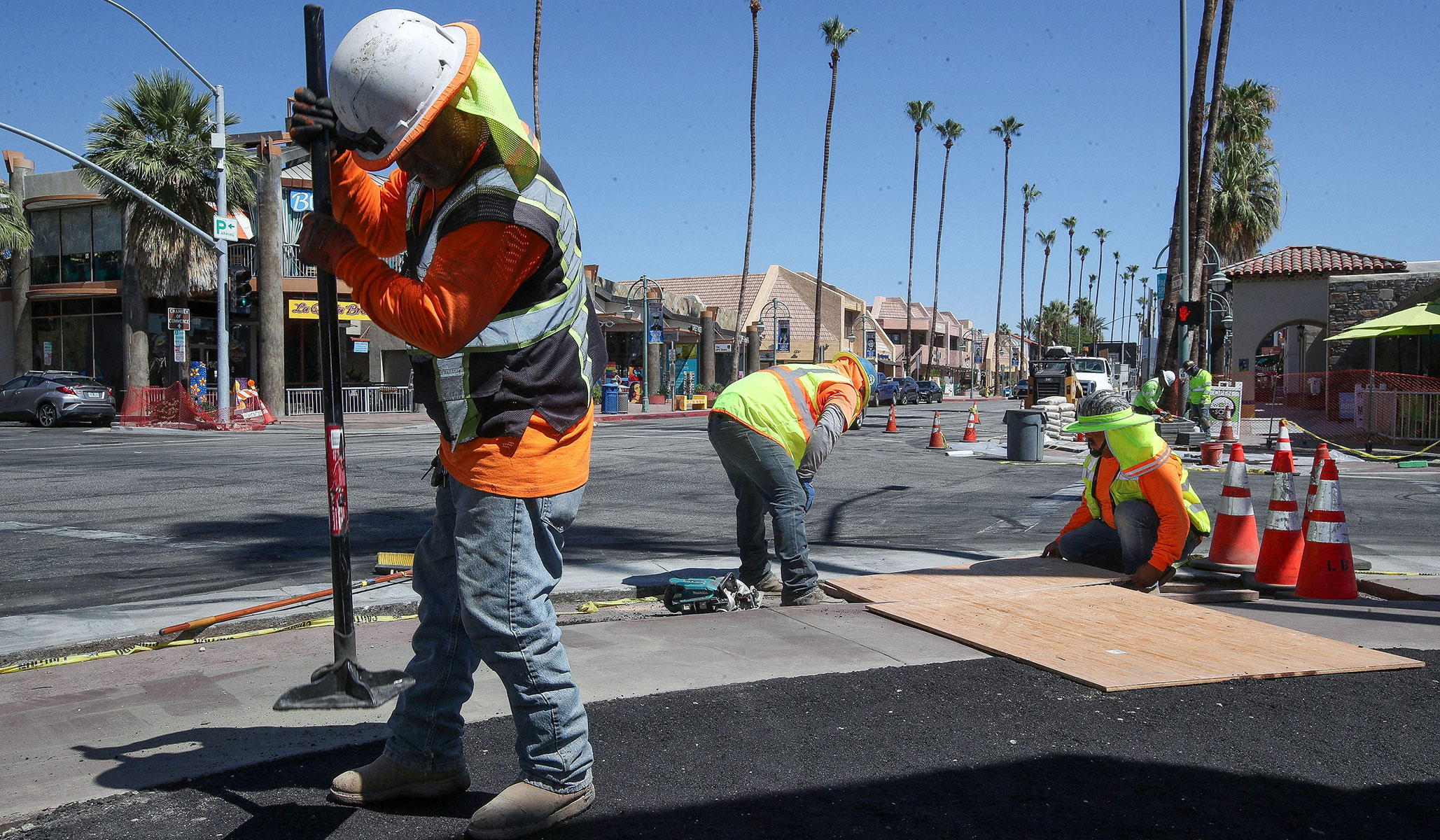


NRPLUS MEMBER ARTICLE C ities have grand dreams of remaking themselves, but their vision of a gleaming urban future keeps evaporating because they are broke. Instead of getting their fiscal houses in order, America’s cities think they have found an easy way out: Make someone else pay. Specifically, you, and not through the regular-but-politically-toxic order of taxation.
For decades cities have used their permitting offices as a mint, withholding valuable permits until citizens agree to extortionate demands to address public problems that officials refuse to solve. The U.S. Supreme Court has repeatedly compared it to extortion, but the lower courts have done little to stop it.
A landmark legal victory signals that this scam may be coming to an end. In 2019, Nashville’s finances were so upside down that the state comptroller warned of a possible state takeover. Yet Nashville was determined to install 71 miles of sidewalks costing an estimated $460 million. But how to pay for it? The city decided it had an easy solution: Make individual Nashvillians pay for sidewalks that belong to the city as a condition of receiving home-construction permits. In a recent ruling sure to reverberate with broke municipalities everywhere, the U.S. Court of Appeals for the Sixth Circuit determined that this practice was unconstitutional.
The ruling backed two Nashvillians, Jim Knight and Jason Mayes, represented by Southeastern Legal Foundation and the Beacon Center, who challenged the law after Nashville told them they couldn’t have permits until they agreed to build city sidewalks or pay the city cash. The court agreed that Nashville couldn’t demand property as a permit condition.
When a government takes property from its residents, the Constitution requires it to pay for it. But Nashville, taking its cues from West Coast cities that have done this for decades, thought it had a workaround. It would hold permits hostage until citizens paid a ransom. Instead of taking property outright, Nashville decided it could coerce citizens into financing and surrendering it. The recent ruling recognized that Nashville was pulling an end run. Property is stolen whether it is robbed or extorted.
If it can happen in Nashville, it can happen anywhere. Nashville is booming and yet somehow broke.
More important still, the court rejected Nashville’s efforts to justify this practice on the grounds that because its permit conditions were demanded by a city ordinance, not some administrator, the policy was constitutional. Many courts have bought this argument, but the Sixth Circuit explained why this makes no sense. A governmental act doesn’t become constitutional because it is a law. That makes it worse, not better. Nashville won’t be the only city to feel the effect of this argument getting exposed.
This decision will reverberate throughout the country. Now cities can demand only that citizens pay to address harms that they create when seeking permits, not for unrelated public problems that cities simply can’t find the money to address. This is sure to upset the expectations of many cities that assumed they could avoid hard fiscal discussions by using their citizens as ATMs.
Now cities can ask citizens to pay only for problems they cause when they apply for permits, which is the whole point of requiring permits. Some projects inflict harm on the surrounding community. Cities should require individuals to bear that cost. For example, if citizens add density through their projects, cities may require them to widen the roads or address stormwater runoff. But now, thanks to this ruling, cities cannot simply unload the cost of maintaining public infrastructure that the public at large enjoys by picking on certain vulnerable persons.
If cities want nice things, they need to figure out how to pay for them. Responsible governance is about setting priorities. Nashville has hundreds of millions to build infrastructure for professional sports franchises, both major and minor, but when it comes to building a sidewalk in front of Jason’s home, they make him cough up $8,800 to build the city’s sidewalks.
Nashville and cities like it won’t even begin to have responsible conversations when they can foist their bills off onto someone else. With this new ruling, that’s about to change throughout the country.
Braden H. Boucek is the director of litigation at the Southeastern Legal Foundation. Justin Owen is the CEO of the Beacon Center. SLF and Beacon successfully challenged Nashville’s sidewalk law before the Sixth Circuit.
